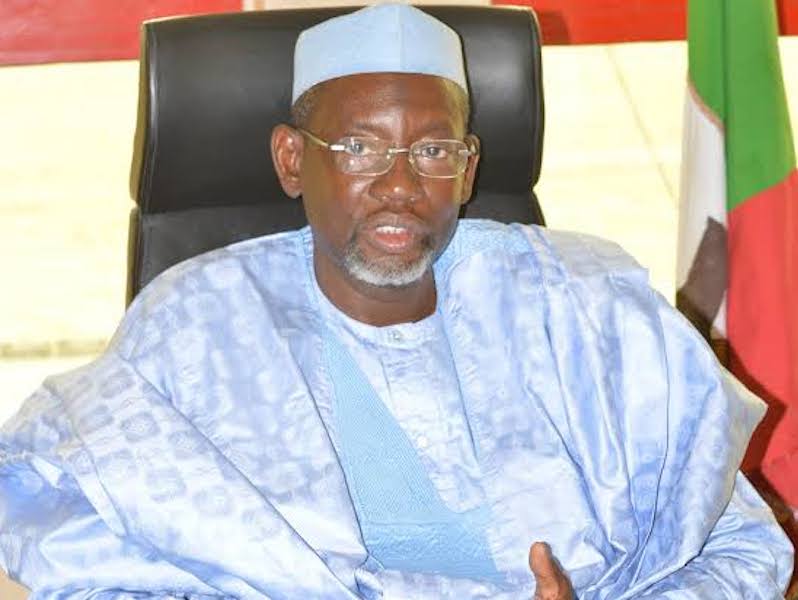The Nigerian Economic Summit Group (NESG) has urged the Federal Government to strengthen its collaboration with relevant stakeholders to engender inclusive sustainable economic growth in the country.
The NESG gave this advice in its First Quarter, 2021 Economic Report obtained by the News Agency of Nigeria (NAN) on Sunday.
The group noted that there was need to improve inclusive growth, because Nigeria needs more than just an economic rebound after the recent economic recession, to achieve inclusive growth and to generate employment.
It described the present relationship between economic growth and the nation’s unemployment rate as “jobless growth”, suggesting that economic growth had not led to reduction in the rate of unemployment.
The report said: “Nigeria has struggled to achieve inclusive growth for many decades. Since recovery from the 2016 recession, the economy has been on a fragile growth path until it slipped into another recession in 2020, due to the COVID-19 pandemic.
“This suggests that the country needs to attain higher and sustainable economic growth, to become strong and resilient.
“The relationship between economic growth and unemployment rate in Nigeria also suggests that economic growth has not led to a reduction in unemployment rate.
“To reverse this recurring trend, there is an urgent need for collaboration between the government and relevant stakeholders toward addressing the constraints to value chain development in high growth and employment-elastic sectors.”
It listed such sectors to include manufacturing, construction, trade, education, health and professional services, with ICT and renewable energy sectors as growth enablers.
The NESG stated that COVID-19 had unveiled the urgent need for value chain development, particularly in the manufacturing industry.
It said the outbreak of the pandemic and its disruption of global supply chains established the increasing need for countries to explore local sourcing of raw materials and intermediate inputs, as these would support and improve domestic value chain development.
” Considering that Nigeria is a net importer of manufactured products, there is need to address key constraints to the growth of the manufacturing sector.
“Issues like the illiquidity of the Foreign Exchange (forex) market and limited forex access, infrastructural and logistic bottlenecks, policy lopsidedness and distortions need to be addressed ”, the report said.
The group called on the Federal Government to also take urgent steps to improve security across the country, in order to boost the immense benefits of its efforts towards growth in the agricultural sector .
Improved agricultural production would be insufficient to ease inflationary pressures, except the issue of insecurity was addressed, the NESG said, suggesting that the rise in inflationary rates, in spite of government’s various interventions in the agricultural sector, attested to the damage insecurity and other bottlenecks posed to the economy.
“Despite the reopening of the land borders, that the Nigerian government shut since October 2019, inflation reached a four-year high of 18.1 per cent in April 2021.
“While we expect improved agricultural production in the coming months to partially ease inflationary pressures, this positive impact can be suppressed by recurring key structural bottlenecks, including insecurity in the food-producing regions, electricity tariff hike, fuel price increase and hike in transport and logistic costs.”
The group, however, commended the Federal Government for its establishment of the Infrastructural Development Company, to accelerate development and upgrade of critical infrastructure in the country.
It further advised on the urgent need to develop an effective Public-Private Partnership (PPP) framework, to be able to plug the estimated three trillion dollar infrastructural gap, over the next two decades.
“In 2018, the African Development Bank (AfDB) estimated that Nigeria requires as much as three trillion dollars in the next 26 years to plug her infrastructural gap.
“Achieving this feat will require exploring alternative financing sources such as, the PPP framework. An instance is a road leading to Apapa seaports, which the Dangote Group previously built under the Federal Government’s Tax Credit Scheme.
“Creating such an environment that is suitable for private sector investment will improve the performance of the construction sector and reduce the fiscal burdens on the government,” it said.
The NESG equally urged the authorities to pay attention to how the country could fully maximise the benefits associated with the African Continental Free Trade Area (AfCFTA) Agreement.
It commended the Federal Government for reopening of land borders, saying that Nigeria was expected to reap more gains from the agreement, through export diversification away from crude oil.
NESG suggested that efforts should, therefore, be directed at strengthening domestic value chains, particularly in building an agro-allied industrial base.
“To achieve this, there is a need to attract private capital, especially FDI, allowing for knowledge and technological transfers; address transport infrastructure bottlenecks and provide improved logistics.”
The NESG also suggested the need for a lasting solution to the Apapa gridlock by making seaports outside Lagos more functional, so as to ensure speedy clearance of consignments.
Similarly, it called for investment-friendly Forex management, to improve investors’ confidence in the Nigerian economy, while commending the Central Bank of Nigeria (CBN) for its recent adoption of NAFEX or IEFX exchange rate, which reflected the forces of demand and supply of forex amongst investors and exporters.
It, however, urged the CBN to play a more independent, competitive role, in the forex sector, noting that such development would most likely arouse investors’ interest in the Nigerian economy.
“The apex bank should rather be an independent trader in the forex market than being the main influencer. The Naira, no doubt, has been overvalued due to the CBN’s forex interventions over time,” it said. (NAN)



